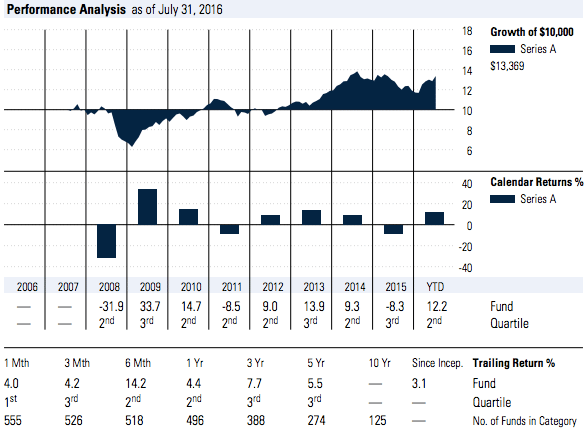Becoming A Better Investor: Socially Responsible Investing
It isn’t what we say that makes a difference in the world. It’s what we do.
There has been high interest and significant growth in socially responsible investing – also known as ethical investing – especially among younger investors and women.
But, even though the trend is growing, it’s not new.
Socially responsible investing has existed since the 1700’s when religious groups such as the Quakers avoided “sinful” investments such as those participating in the slave trade.
More recently, in the 1960s – 1970s, investors were mainly concerned with contributing to causes such as women’s rights, civil rights and the anti-war movement.
Between the 1970’s and 1990’s, companies, pension funds, and individuals stopped investing in South Africa due to apartheid – racial segregation and other human-rights violations. Socially responsible investing was used as a tool to dismantle apartheid in 1994.
Currently, awareness has grown over global warming, climate change, and human rights.

Is socially responsible investing the right choice for you?
Modern ethical investing has become more complex because there are hundreds of investment products and fund managers putting their interests towards a wide spectrum of social issues.
Many socially responsible fund managers rigorously screen their holdings and avoid businesses involved in tobacco, alcohol, gambling and the development of weapons. “Green” investing focuses on environmental protection.
Nearly every major financial institution offers socially responsible funds, as well as mutual funds companies such as Phillips, Hagar & North. Some products are available for purchase through a discount broker. Others are only purchased through financial advisers (Ethical Funds).
Do your research
Don’t be sidetracked by the word “sustainability” in a fund’s name or description. A check of a couple of popular sustainable funds showed little difference between them and their regular counterparts. For instance:
RBC Janzi Canadian Equity Fund (RBF302)
Holdings: 36% financials, 18% energy, 46% other
Top ten holdings: RBC, TD, BNS, CNR, Suncor, Brookfield Asset Mgmt, BMO, Canadian Natural Resources, Manulife, BCE
MER: 2.09%
Returns:

RBC Canadian Equity Fund (RBF269)
Holdings: 39% financials, 21% energy, 40% other
Top ten holdings: RBC, TD, BNS, Suncor, Canadian Natural Resources, CNR, BMO, Brookfield Asset Mgmt, Enbridge, TransCanada Corp.
MER: 2.06%
Returns:

iShares Jantzi Social Index ETF (XEN)
Holdings: 34% financials, 17% energy, 49% other
Top ten holdings: RBC, TD, CNR, Suncor, BMO, BCE, CIBC, CPR, Telus, Sun Life
MER: 0.56%
Returns:

iShares Core S&P/TSX Capped Composite Index (XIC)
Holdings: 35% financials, 20% energy, 45% other
Top ten holdings: RBC, TD, BNS, CNR, Suncor, BMO, BCE, Enbridge, TransCanada Corp, Canadian Natural Resources
MER: 0.06%
Returns:

If you want to invest in companies that follow environmental sustainability, social responsibility and corporate governance (ESG), you should do your own research.
Check Sustainalytics, an investment research firm that provides research on different companies and countries. For a mutual fund or ETF evaluation, Morningstar rates how well the companies held in over 2000 funds are managing their ESG risks and opportunities.
How are the returns on SRI funds?
The bad news with socially conscious investments is that they’ve had a history of poor returns. They don’t produce nearly the same returns as their unethical counterparts.
For decades, investments such as the Barrier Fund (formerly the Vice Fund) which invests in companies involved in defense, gaming, tobacco and alcohol, have significantly outperformed benchmarks such as the S&P 500 and all ethical funds.
But, don’t avoid socially responsible investing because of poor returns. The key, as in other investing, is to judge the company and fund as an investment first and not become so enamoured by its social responsibility record that you can’t see whether or not it is over-priced.
High fees can eat up more of your portfolio than underperforming markets. Understand what you’re paying and whether it’s worth it to you.
An investor must still assess the financial outlook of any investment. Give thoughtful consideration to the investment’s history, management, and future direction.
Final thoughts
Many investors believe that social responsibility should be a primary consideration in making investment decisions.
The good news is that the Canadian socially responsible funds market has been gaining increasing momentum and influence over the past few years. This increase can be attributed to large pension funds adopting new social and environmental screening policies.
Even robo-advisors such as Wealthsimple and ModernAdvisor have designed portfolios specifically around socially responsible investing.
If this is an investment strategy you want to pursue, begin by examining your own personal values and what you consider ethical and unethical. Follow your own guidelines to make the most meaningful use of your money.
Socially responsible investing is about choosing to make a financial commitment to your conscience and investing where you feel your money is the most useful.
Try to balance your social concerns with long-term results.


You know, I’ve never thought about investing and social responsibility in the same breath. You’ve brought up some good points to ponder.
Great post as usual, and thank you for mentioning us. Many people don’t know that socially responsible investments are an option!
I run an Ethical Invesrnent Company. Been in operation for 30 years. Retuns are better than mainstream counterparts. Over long term. There is no sacrifice in return to invest according to your values.
I choose to practice sustainable investing in a different way. Not that I care that much about the concept, but still.
I invest in what I feel will generate me the greatest return over time. I can then choose to invest that extra capital in various green programs or whatever cause I feel passionate about.
I think the two should be mutually exclusive, in other words.